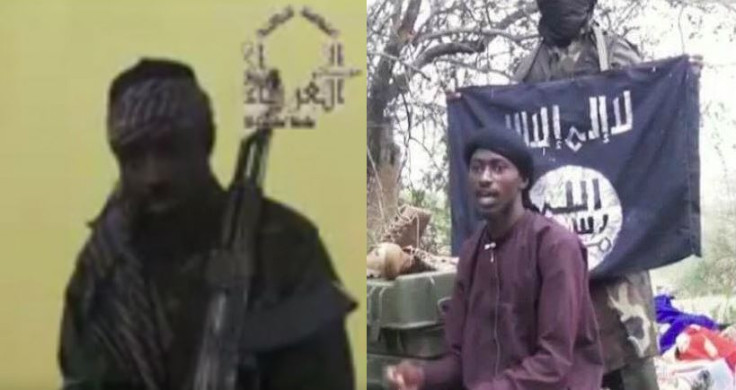Abubakar Shekau's video evidence of growing tensions between Boko Haram factions
Tensions increase as disputed leader Shekau refuses to acknowledge Barnawi's appointment.
A video released by the disputed leader of Nigeria-based terror group Boko Haram is proof that there are tensions between the two factions within the Islamist outfit, a security analyst told IBTimes UK.
Abubakar Shekau recently released a 24-minute clip vowing he would continue to fight. The video came days after Boko Haram's ally, the Isis terror group, replaced Shekau with Abu Musab al-Barnawi, former Boko Haram spokesperson.
Shekau, however, denied he had been replaced and claimed Barnawi was staging a coup against him. He also accused Barnawi of being an infidel who condoned living in a non-Islamic society without waging jihad.
Following the new appointment, analysts warned the group had split into two factions, one loyal to Shekau and the other to Barnawi.
"The video is another reason to expect some tension between Shakau's faction and the faction of Al Barnawi," David Otto, CEO of global security provider TGS Intelligence Consultants, told IBTimes UK.
"Shakau is probably doing this video appearance to reassure his followers that he is still alive and in control. Without this type of assurance, most of his militants will cross over to Barnawi's faction. This could be a strong message of defiance to [Isis] - Shakau will not give up his leadership without a fight."
Otto added that Al-Qaeda in the Islamic Maghreb (Aqim) could be interested in allying with Shekau, given his refusal to accept Barnawi as his replacement.
"We may never witness a physical battle between Shakau's faction and that of Barnawi, but a battle of ideology will ensue," he said. "This is an indication that technically the fight against insurgency in the region is just beginning."

Who are Nigeria's Boko Haram terrorists?
Boko Haram, which has renamed itself Iswap, fights against Western influence in Nigeria and aims to impose its version of Sharia law throughout occupied territories. It carries out attacks in Nigeria and neighbouring countries in a bid to take control of more territory.
Three Nigerian states − Adamawa, Borno and Yobe − have been under a state of emergency since May 2013.
Boko Haram has killed more than 20,000 people since 2009 and was deemed the world's deadliest terror group, surpassing Isis in November 2015.
Nigeria has become the world's third-most terrorised country as a result of the group's violent insurgency.
Why was Shekau replaced?
- Shekau became Boko Haram leader in 2009, when the then leader Mohammed Yusuf died in police custody.
- In 2015, rumours spread that Shekau had been killed or replaced, he has not made a verified video appearance for a year. The rumours could undermine the group's operation and loyalty of other cells.
- Shekau is known to prefer Boko Haram's autonomy from foreign jihadist groups.
- The fact that some Boko Haram members left the group to form other splinters has cast doubt over his leadership.
- Shekau has been criticised by many Boko Haram members – and Isis itself – for, among other things, killing Muslims and allowing the use of children in suicide bombing missions.
© Copyright IBTimes 2024. All rights reserved.






